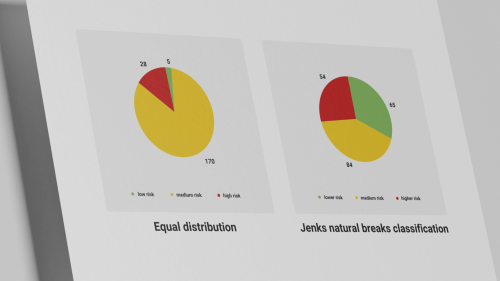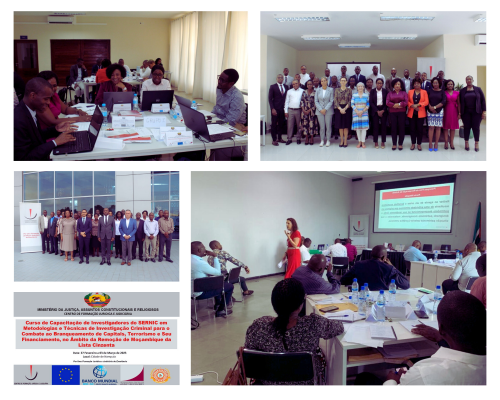Is Malta a high-risk or low-risk country for money laundering?

Money laundering risks in Malta have been in the headlines recently.
One question puzzling commentators is this: why does the Basel AML Index rate Malta as a relatively low-risk country for money laundering, when the latest assessment by the Financial Action Task Force (FATF) criticises the country’s AML/CFT framework for being ineffective?
The answer is simple. A new Mutual Evaluation Report for Malta was issued by the FATF on 18 July, shortly after the collection of data for the 8th Public Edition of the Basel AML Index was finalised. Malta’s ranking of 113 out of 125 countries in the Public Edition of the Basel AML Index, where 125 is the best position, therefore did not reflect this new data.
Why new FATF data can dramatically change risk assessments
FATF Mutual Evaluation Reports are the most important data source for the Basel AML Index, with a 35 percent weight in the total score. (Learn about the Basel AML Index methodology and 15 indicators.)
The new data has therefore had a tremendous impact on the position of Malta in the Basel AML Index. The overall risk score of the country has jumped up from 3.94 to 5.38 out of 10, where 10 is the highest possible risk. Risks related to the quality of the money laundering and terrorist financing (ML/TF) framework in the country also jumped up from 4.48 to 6.70. The new FATF assessment is the main cause for such dramatic changes.
This does not necessarily indicate a sudden and dramatic deterioration in Malta’s ML/TF risks. It is more likely that it points to longstanding gaps in relation to the effectiveness of the country’s AML/CFT framework that have only just been highlighted by the FATF. A brief analysis of the new FATF report for Malta (see below) supports this conclusion.
How to obtain more reliable, up-to-date ML/TF risk ratings
The Public Edition of the Basel AML Index is issued annually and is primarily used to identify trends in AML/CFT and changes in country risk levels over longer periods of time. It covers only 125 countries with sufficient data to calculate a reliable score.
To properly assess specific country risks related to ML/TF for compliance or policy purposes, we strongly advise using the Expert Edition of the Basel AML Index. This is updated quarterly (and therefore takes into account the latest FATF data for Malta) and includes all 203 countries around the world. It also allows users to dive deep into individual indicators to see exactly where the risks lie and investigate further if needed. The Expert Edition is free for public institutions, non-profit organisations, academics and others.
Availability of data – an ongoing challenge
The case of Malta illustrates the challenge in obtaining quality, up-to-date data to calculate country risk scores for ML/TF. While FATF reports are the most relevant and comprehensive data sets we have for this, they are issued too infrequently.
The FATF has taken positive steps by increasing the frequency of FATF updates and harmonising the methodology between different regional bodies. It is hoped that with a continuously increased frequency of evaluations by FATF and its regional bodies, we can soon achieve full coverage and as such avoid skewed data due to outdated reports.
The impact goes far beyond the Basel AML Index as the reports themselves, and the Basel AML Index, directly impact on the due diligence systems implemented by financial institutions and investors.
Other ML/TF risk factors
Besides FATF data, other important sources in calculating ML/TF risks scores are Financial Secrecy Index (FSI) and US State Department International Narcotics Control Strategy Report (INCSR) data. The FSI evaluates Malta as a high-risk country in relation to financial secrecy. However, the US INCSR does not label it a major money laundering country.
The country has also medium level of risks when it comes to corruption and bribery, based on Transparency International’s Corruption Perceptions Index and TRACE Bribery Risk Matrix Matrix.
It has low level of risks in public and financial transparency and accountability, as well as political and legal risks.
Analysis of Malta’s latest Mutual Evaluation Report
The Mutual Evaluation Report for Malta, prepared by the regional AML/CFT monitoring body Moneyval, covers both the technical compliance of Malta's AML/CFT systems according to the FATF’s 40 Recommendations (R) and th the effectiveness of these systems according to 11 “immediate outcomes” (IOs).
Malta’s overall performance in technical compliance is 68 percent.The country is partially compliant with R8, R13, R15, R20, R26, R28, R36 and R38. This reflects moderate shortcomings in relation to preventive measure (corresponding banking, new technologies, reporting suspicious transactions) as well as to regulation and supervision of financial institutions and international cooperation (mutual legal assistance and international instruments).
In contrast, the overall effectiveness of Malta’s AML/CFT systems was assessed at only 30 percent. It was not assessed as having a high level of effectiveness in any of the 11 IOs.
Malta has demonstrated a particularly low level of effectiveness in relation to IO3, IO7 and IO8. Such results reflect low effectiveness in supervision of the financial institutions and designated non-financial businesses and professions, as well as issues related to the investigation and prosecution of ML offences and activities, and confiscation of proceeds of crime. The country needs substantial improvements to cover these issues.
It was assessed as having a substantial level of effectiveness in relation to IO2 and IO11. Such results reflect that international co-operation delivers appropriate financial intelligence and that persons and entities involved in the proliferation of weapons of mass destruction are prevented from raising, moving and using funds.
See more
- See the Basel AML Index press release and key trends in 2019.
- Learn what FATF Mutual Evaluation Reports reveal about money laundering in 2019.
Photo of Valletta, Malta by Ines Bahr from Pexels.




